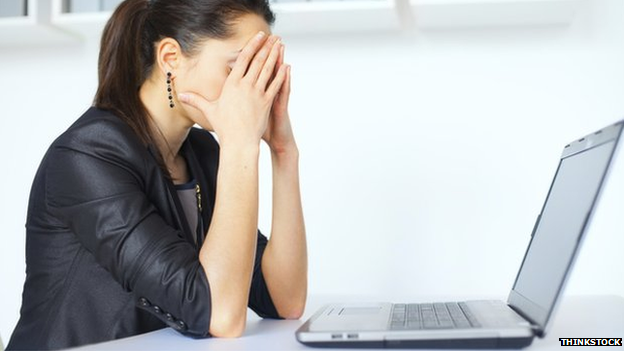The Government asks the public about revenge porn
- Published

It involves posting explicit online pictures of ex-partners to humiliate them after breaking up.
Now after much discussion the government is asking the public whether they have, or know someone, who has been a victim of revenge porn.
Ministers say it will allow them to understand whether more needs to be done to address the problem.
The questionnaire, external also looks at whether people feel there is enough in place to easily remove graphic images.
Last month calls by MPs for revenge porn to be made a criminal offence were rejected by a committee in the House of Lords, because they felt it was already covered by existing laws.
It's currently illegal to post revenge porn pictures in some cases such as if they show a child under 18, or if the post is part of sustained campaign of harassment.
In July 21-year-old Amy told Newsbeat her ex-boyfriend posted explicit photos of her on Tumblr, but police said there was nothing they could do.
Some of the questions include:
"Did you, or the person you know, make a complaint to the police? If not, why not?
"If the images were posted on a website or app, did you, or the person you know, speak to the provider to complain or ask them to remove the images?
"Did you, or the person you know, want more to be done to deal with the situation?"
The consultation runs until 7 September 2014.
Advice to stay safe
• Keep your privates private. Remember images can be shared easily online.
• Lock it down. Use strong passwords help keep your content private.
• Don't feel pressured into posing for an intimate picture or video if you're not comfortable with the situation
• Report content aimed at you or your friends to the site concerned, this benefits the online community as a whole.
• Tell someone you trust. If you, or your friends have concerns, don't suffer in silence - tell someone. More people now than ever before are geared up to help you.
Advice for victims:
• Don't suffer in silence by speaking out we're raising awareness of the issue.
• If you took the picture or captured the video, you own the copyright.
• If you know the person that is doing this you can apply for a civil injunction to stop them doing it again.
• There are other organisations that can help too, the National Stalking Helpline and Women's Aid for example.
• Contact the sites via the reporting routes to get images removed - don't take no for an answer.
The advice above was provided by the Safer Internet Centre, external.
Follow @BBCNewsbeat, external on Twitter and Radio1Newsbeat, external on YouTube
- Published2 July 2014
